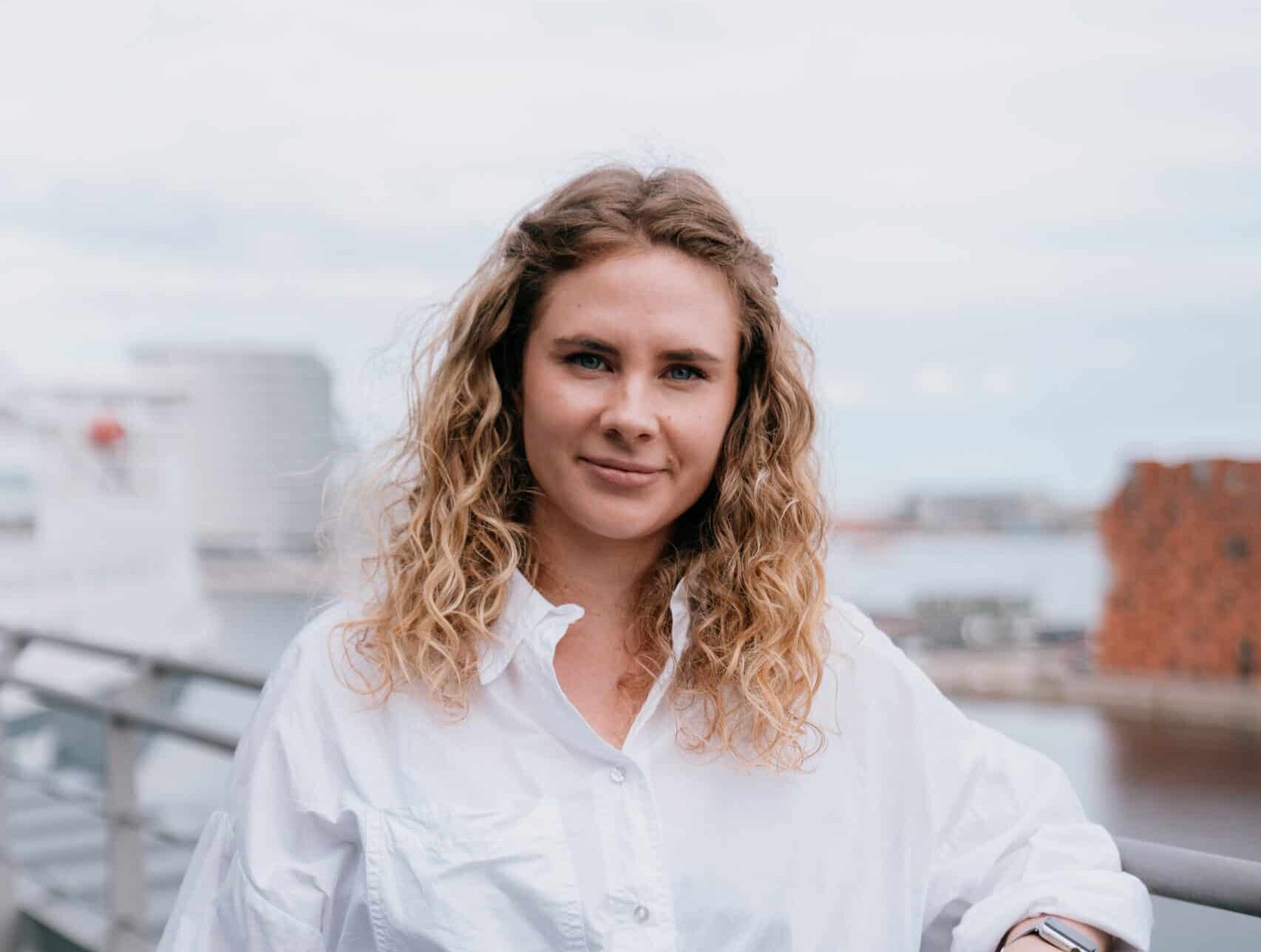Name: Line Nørgaard
Title: Manager in NewTech
Company: KPMG Danmark
Please introduce yourself
My name is Line Nørgaard. I’m 31 years old. I work as a manager in KPMG NewTech, which is a team that focusses on implementing new technologies for companies.
I have a bachelor’s degree in communication (AAU CPH) and a master’s degree in digital design and communication (ITU).
A fun fact about me is that I have a drone license. I don’t fly drones, but during covid-19 I got bored and I thought it would be fun to take the license.
How did you imagine your career when you were around 20 years old?
At this stage I didn’t quite know what I wanted to do. I had a lot of drive and ambition, but I didn’t know how and where I wanted to channel that energy. I therefore went through a lot of different stages of ideas of directions to go into; everything from working in film production to marketing to starting my own business. I have always had a more explorative approach to figuring out what I wanted to do and luckily, I discovered AI.
What does a day in your life look like in your current role?
My days are often very different. Typically, I will be working on some type of AI implementation project. My role in those projects is to lead and to manage the deliveries. I often say that my role is not only to make sure that the technical implementation is being done, but also ensuring that an organisational implementation is being made.
Besides client work, I am a part of our Machine Learning & Quantum Technologies management team and I also coach other consultants. I also spend a lot of time on promoting more diversity within the field of AI, as I truly think we can create better solutions when we are diverse teams.
What motivates and excites you the most about your career path and the leadership position you hold?
AI is a field that is always changing, which is exciting! For example, 6 years ago when I was writing my master thesis, I chose to write about conversational AI, which people thought was niche and not useable in a job role. Today, experienced AI professionals are some of the most sought-after talents in the market. Having been on that journey has been extremely insightful and fun because you must be quick to adapt and to grasp new technological advancements.
I enjoy being in a leadership position within this field for the same reason. AI constantly provides new challenges for our consultants and therefore the focus is often more on how they want to evolve as people within those challenges and technical advances and I find those types of dialogues incredibly valuable.
Share with us the biggest lessons you learned on your journey to where you are today.
I think one of the biggest lessons I have learned is time is the most valuable currency you have, and you need to make sure to invest it in a place that brings the most value to you. The value can be different from person to person. To me it is a mix of feeling like I develop as a professional, a good social life at work and having leaders who support me and understand my talent.
Tell us about a role model who inspired you to become the leader you are today.
Rather than highlighting a single person, I think all the women I work with are a huge inspiration to me. They are all incredibly talented in their own unique ways. We recently created Women in NEO (NEO is our service line name), where we meet up for lunches and talk about different topics and challenges, we are currently experiencing. This creates such a great network within our service line and creates visibility in terms of how we can help each other.
If you could give one piece of advice to your younger self, or to students today, what would it be?
Be yourself. I think something that has been a conflict for me over the years is a need to fit in, but acting like someone else to fit in is difficult. If you have a diverse profile it can sometimes be a struggle to feel like the odd one out and it can seem easier to try to act like everyone else, however that creates a different kind of struggle as that might not be authentic to who you are. Over the years I have learnt to feel more at ease with being myself and standing by myself and using that as a strength rather than feeling it is a block.
How do you see STEM education shaping the future?
I think it will continue to have a huge impact. I can mostly speak to technology in terms of AI, and I believe it will be a lot more integrated in all types of jobs – even those that historically have not been impacted that much by AI. It will be important for companies to have a focus on this to be able to have a competitive edge. However, I also think AI should be used for the greater good and I have also been a part of implementing solutions which help companies execute on their ESG strategy. I hope that this will become a lot more prevalent in the future.
Why is it important for you to promote diversity and inclusion within STEM?
It’s important for me to promote more diversity and inclusion within AI, because it will be a very integrated part of our society in the future and it’s therefore important to have diverse teams to be able to create the most valuable solutions. To me, diversity and inclusion are therefore a crucial part of the development of AI as a field, because I think some of the untapped value can be unlocked with the help of more diverse teams.
